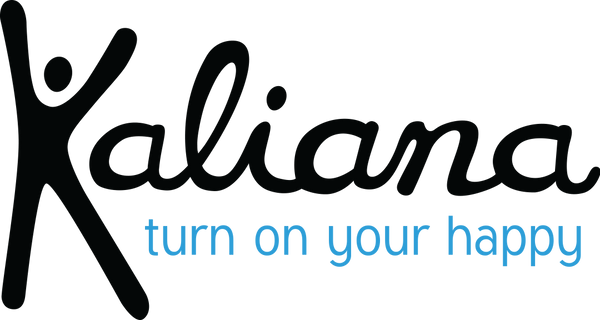8 Tips for Becoming Present and Finding Your Calm
![]() Jan 14, 2019
Jan 14, 2019

Ask yourself this: can you sit for one minute and completely quiet your mind?
In our fast-paced, technology-driven society, we are always plugged in and stimulated. It is difficult to connect with the present moment because our minds are constantly looking for input from the external world.
Our brains actually reward us with a jolt of dopamine (the feel-good hormone) every time we experience or obtain new information.
When we do not provide adequate amusement, our brain generates its own entertainment by going into default mode, or what it commonly known as daydreaming.
Housing a brain that requires constant entertainment obviously makes being present and calm throughout our day very difficult—but is necessary for living a fulfilling life.
How many times have you eaten a meal to realize you didn’t take the time to enjoy it?
How many times have you felt distracted even though you’re with the people you love most?
You aren’t alone in this.
Here are 8 tips to becoming more present and for finding your calm:
Use essential oils
When you get caught in an overwhelming wave of emotion, use essential oils to help you calm down. The sense of smell is wired to the brain’s centers for memory and emotion. This is why aromatherapy can have such a positive effect on the mind.
Try diffusing jasmine, sandalwood, neroli, vetiver, and benzoin—or use them as a blend for greatest benefit.
Do a morning ritual
Practice calmness the moment you wake up. Rushing through your morning, immediately checking social media or email promotes stress, which begins your day on a negative note. Instead, enjoy the quiet of the morning and make the most of it by waking up a little earlier. Begin the day with few minutes of meditation, gratitude, stretching, or even sipping a cup of tea to make your morning focused on you versus the outside world.
Calming imagery
Imagery is an effective stress management technique. There is power in imagination. Think about a situation that calms you and let it linger in your mind for a few minutes. This can help quickly calm your body and relax your mind.
Learn to pause before you respond
When something stressful happens, how do you react? Do you instantly feel angry or overwhelmed? Most of the time, we react without thinking and make the situation worse. Learn to pause, take a breath, and analyze the situation carefully, so that your emotions do not overpower you and dictate your behavior.
Get more sleep
Staying up late and getting less sleep is linked to the development of anxiety. Having a consistent sleep schedule is crucial for your overall health. When we sleep, we clear toxins from the brain and support learning and memory. It’s critical for healthy brain function, emotional well-being, balancing hormone levels, and repairing damaged cells.
Listen to calming music
Gentle music with a familiar melody is both calming and comforting. Choose a song you loved as a child or one that is close to your heart. The sounds of nature also work. They help conjure calming images like flowing water or singing birds. Breathe deeply and focus on the way your body responds to the music.
Healthy coping habits
What do you do when you’re stressed - procrastinate, go on a shopping spree, drink alcohol, eat junk food? These are unhealthy responses we all fall victim to. Learn to cope healthily by walking in nature, journaling, painting, or talking to someone you trust.
Reduce noise
You encounter all kinds of noise everyday - social media, toxic news, and visual clutter to name a few. Set a time in the morning or before bed where you put your phone away and turn the TV off. Even if you start with just 1 minute (set a timer) - give yourself quiet time where you focus on your breathing.
Inhale slowly and deeply, focusing on the expansion of your lungs, then with the same level of attention, exhale completely. Repeat.
Let your thoughts come without feeding them; let them pass without judgment. You deserve your own undivided attention and you deserve your love.
Disclaimer: This article is not intended to provide medical advice, diagnosis or treat. This information is based on research and knowledge by the author, and the ideas are not intended as substitute for medical advice. As with any products it is suggested that you check with your medical practitioner prior to use. The author disclaims any liability arising directly or indirectly from the use of any products mentioned herein.


















There are no comments for this post.
Leave a comment